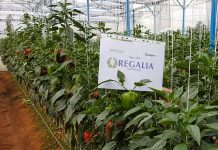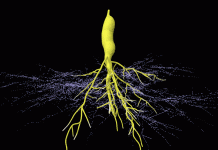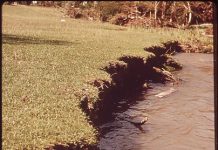Jim Lane
 Year founded:
Year founded:
2003
Annual Revenues:
$38 billion (DuPont overall for 2011)
$1.2 billon (Industrial Biosciences unit for 2011)
Company description:
Solazyme, Inc. is a renewable oil and bioproducts company that transforms a range of low-cost plant-based sugars into high-value oils. Headquartered in South San Francisco, Solazyme’s renewable products can replace or enhance oils derived from the world’s three existing sources – petroleum, plants and animal fats. Initially, Solazyme is focused on commercializing its products into three target markets: (1) fuels and chemicals, (2) nutrition and (3) skin and personal care.
Stock: NASD: SZYM
Type of Technology(ies):
Solazyme has developed a proprietary biotechnology platform that creates tailored oils to address products across the fuels and chemicals, nutritional, and beauty and personal care markets. Solazyme’s innovative capability to “tailor oils” refers to their ability to produce oil with specific desired chain lengths, saturation and functional branching, providing benefits and functionality beyond those typically available with traditional oils.
Feedstocks:
Solazyme’s unique platform is feedstock flexible. The company is able to utilize a wide variety of plant sugarsincluding sugarcane-based sucrose, corn-based dextrose, and other biomass sources such as cellulosics to produce their oils.
Products (e.g. ethanol, biobutanol, biodiesel, renewable diesel, renewable jet fuel, power, organic acids, bioplastics etc)
Solajet™: 100% algal-derived renewable jet fuel
Solazyme’s 100% algal-derived hydrotreated renewable jet fuel (HRJ-5) meets military specifications
SoladieselRD® : 100% algal- derived renewable diesel
Solazyme’s 100% algal-derived hydrotreated renewable diesel (HRF-76) meets military specifications
Algenist™, a line of advanced anti-aging skincare products formulated with alguronic acid, sold at 850 Sephora locations throughout the US and Europe and all 26 Canadian Sephora stores. Algenist has been sold on Canada’s only nationally televised shopping service, The Shopping Channel, in addition to QVC in the US, one of the largest multimedia retailers in the world. Algenist is also available throughout the United Kingdom in all 60 retail locations of the innovative beauty retailer, Space NK.
Through Solazyme Roquette Nutritionals, our wide platform offers an entirely new category of natural, sustainable, and multifunctional ingredients based on microalgae that help consumers live healthier lives. Our portfolio includes a variety of whole food ingredients that deliver better tasting foods with a vastly superior health profile compared to ingredients in the market today.
Product Cost
– Solazyme’s lead microalgae strains producing oil for the fuels and chemicals markets have achieved key performance metrics that they believe would allow them to manufacture oils today at a cost below $1,000 per metric ton ($3.44 per gallon or $0.91 per liter) if produced in a built-for-purpose commercial plant.
Offtake partners
Solazyme has entered into non-binding offtake agreements with Dow Chemical and Qantas. Dow Chemical will purchase up to 20 million gallons (76 million liters) of Solazyme’s oils in 2013, rising to up to 60 million gallons (227 million liters) by 2015. Qantas will purchase a minimum of 200 to 400 million liters of Solazyme’s jet fuel per year.
Past Milestones
– Produced over 283,000 liters of military-spec diesel (HRF-76) for U.S. Navy contract. Further solidifying its relationship with the U.S. Navy, Solazyme has completed production of over 283,000 liters of in-spec marine diesel fuel, HRF-76, for the U.S. Navy, in fulfillment of the first phase of its Defense Logistic Agency (DLA) contract that calls for production of up to 550,000 liters in two phases. The initial fuel production for phase 1 of this contract was completed ahead of schedule and is currently expected to be delivered ahead of the contract delivery date. Additionally, the U.S. Navy has indicated its intent to exercise its phase 2 option and has transferred funding to the DLA, which is set aside exclusively for the phase 2 modification, which is currently being negotiated. The phase 2 fuel would be produced through the first half of 2012. Furthermore, Solazyme’s algal-derived marine diesel has been successfully tested in a United States Navy Riverine Command Boat, and Solazyme’s jet fuel has been successfully tested in a MS 60S Seahawk helicopter demonstration.
– Signed framework agreement with Bunge Limited for commercial renewable oil plant in Brazil. Both companies have entered into a framework agreement for the formation of a joint venture focused on the production of triglyceride oils in Brazil. The JV will focus on the production of triglyceride oils from sugar cane, and will result in the construction of the first commercial facility dedicated to tailored oils. The plant, which will enable the production of 30 million gallons of triglyceride oils per year, will break ground in 2012 and begin operations in 2013. The facility will be located adjacent to a Bunge owned sugar cane mill in Brazil, and will leverage both Solazyme’s breakthrough sugar-to-oil technology and Bunge’s sugarcane milling and natural oil processing capabilities.
– Partnered with Dow Chemical for development of Solazyme’s micro algae-derived oils for use in bio-based dialectic insulating fluids. Solazyme and Dow Chemical announced a non-binding agreement for the execution of both a joint development agreement and a letter of intent to advance the development of Solazyme’s algal oils for use in bio-based dialectic insulating fluids. Under the LOI, Dow Chemical will purchase up to 20 million gallons (76 million liters) of Solazyme’s oils in 2013, with the figure rising to up to 60 million gallons (227 million liters) by 2015.
– Purchase of Peoria, IL facility and commencement of the build-out of Peoria facility including DOE approval of relocation of IBR . Solazyme will shift the location of its integrated biorefinery to its Peoria facility. Solazyme began the build-out of this recently acquired facility, adding fermentation capacity and performing upgrades after completion of the acquisition in May 2011. The fermentation portion of this facility is expected to be operational in the second half of 2011, with end-to-end manufacturing expected in the first half of 2012. Acquiring additional capacity and shifting from toll manufacturing to in-house production represents an important milestone.
Future Milestones
– In 2012, Solazyme expects to break ground on their first Fuels and Chemicals facility; the facility is slated to come online in 2013
– In 2012, Solazyme plans to increase their owned capacity to approximately 8.000 metric tons through the expansion of a Peoria facility as well as the completion of their Phase I and II Solazyme Roquette Nutritionals facilities
– By the end of 2014, Solazyme expects to be approaching its goal of having 550,000 metric tons of production capacity by 2015, which would support over $1 billion in product revenue
Business Model: (e.g. owner-operator, technology licensor, fee-based industry supplier, investor)
– Partnership model – Solazyme looks for strategic partners in major markets to drive forward development and commercialization. In addition to funding development work and performing application testing, Solazyme’s expects that their partners will enter into long-term purchase agreements (offtakes) with them. They are currently engaged in development activities with multiple partners, including Chevron, Dow, Ecopetrol, Qantas and Unilever, any of which could represent attractive future offtake opportunities. They expect future partnerships to provide access to distribution, merchandising, sales and marketing, customer relationship management and product development knowledge and resources. In conjunction with these development activities, Solazyme has entered into non-binding letters of intent with Dow and Qantas for the purchase of our products (offtakes). Subject to certain conditions, including entry into a supply agreement, Dow will purchase up to 20 million gallons (76 million liters) of our oils in 2013 rising to up to 60 million gallons (227 million liters) by 2015 and Qantas will purchase a minimum of 200 to 400 million liters of our jet fuel per year.
– Market entry- Solazyme has developed a sequential market entry strategy as their technology is capable of producing oils for multiple markets. Solazyme’s business strategy has been to enter into high value market as they ramp up production capacity. The flexibility of their technology platform, coupled with the myriad uses of oil gives them a $1.5 trillion dollar addressable market. Initially, they are focused on three large markets: Skin and Personal Care, Nutritionals, and Fuels and Chemicals. They have targeted commercialization in the higher margin Skin Care and Nutritionals segments, while aggressively ramping their planned manufacturing in Fuels and Chemicals.
Competitive Edge(s):
Feedstock and target market flexibility. Solazyme’s technology platform provides them with the flexibility to choose from among multiple feedstocks on the input side and multiple specific products (and markets) on the output side, while using the same standard industrial fermentation equipment. A manufacturing facility utilizing a given plant-based sugar feedstock can produce oils with many different oil compositions. Conversely, Solazyme can produce the same oil compositions by processing a wide variety of plant-based sugar feedstock. This flexibility enables Solazyme to choose the optimal feedstocks for any particular geography, while also enabling us to produce a wide variety of oils from the same manufacturing facility.
Low production cost enables broad market access. The production cost profile Solazyme has already achieved provides attractive margins when utilizing partner and contract manufacturing for the nutrition, and skin and personal care markets in which they are currently selling their products. Based on the technology milestones Solazyme’s have demonstrated, they believe that they can profitably enter the fuels and chemicals markets when they commence production in larger-scale, built-for-purpose commercial manufacturing facilities utilizing sugarcane feedstock.
Tailored oils. Solazyme has created a paradigm that enables the company to design and produce novel tailored oils that cannot be achieved through blending of existing oils alone. These tailored oils offer enhanced value as compared to conventional oils. Their oils are drop-in replacements such that they are compatible with existing production, refining, finishing and distribution infrastructure in all of their target markets.
Technology proven at scale. Solazyme believes that they have produced more non-ethanol, microbial-based fuels and oils than any other company in the advanced biofuels industry. From January 2010 through February 2011, Solazyme produced well over 500,000 liters (455 metric tons) of oil. To satisfy the testing and certification requirements of the US Navy, Solazyme partnered with Honeywell UOP to refine a portion of this oil into over 200,000 liters (182 metric tons) of military specification marine diesel and jet fuel.
Further solidifying its relationship with the U.S. Navy, Solazyme has completed production of over 283,000 liters of in-spec marine diesel fuel, HRF-76, for the U.S. Navy, in fulfillment of the first phase of its Defense Logistic Agency (DLA) contract that calls for production of up to 550,000 liters in two phases. The initial fuel production for phase 1 of this contract was completed ahead of schedule and is currently expected to be delivered ahead of the contract delivery date. Additionally, the U.S. Navy has indicated its intent to exercise its phase 2 option and has transferred funding to the DLA, which is set aside exclusively for the phase 2 modification, which is currently being negotiated. The phase 2 fuel would be produced through the first half of 2012.
Commercial products today. In 2010, we launched our first product, the Golden Chlorella® line of dietary supplements, as a market development initiative, with products incorporating Golden Chlorella® currently being sold at retailers including Whole Foods and GNC. In March 2011, we launched our Algenist™ brand for the luxury skin care market through marketing and distribution arrangements with Sephora International, Sephora USA and QVC. Distribution of our Algenist™ line of skin care products is expected to reach more than 850 retail stores worldwide by year end, including all 26 Canadian Sephora stores. Algenist has been sold on Canada’s only nationally televised shopping service, The Shopping Channel, in addition to QVC in the US, one of the largest multimedia retailers in the world. Algenist is also available throughout the United Kingdom in all 60 retail locations of the innovative beauty retailer, Space NK.
Research, or Manufacturing Partnerships or Alliances.
Solazyme is working with a range of companies and government organizations, including Chevron, the Department of Energy, Department of Defense, Dow Chemical, Bunge, Ecopetrol, Roquette, Sephora, Qantas, Unilever, and the U.S. Navy.
Notably, Solazyme has launched a JV agreement with Roquette (SRN), signed JDA extensions with Chevron, Unilever and Bunge, and entered into offtake agreements with Dow Chemical and Qantas. Solazyme also recently announced a JV agreement with Bunge focused on production of triglyceride oils in Brazil. Additionally, the U.S. Department of Defense (DoD) selected Solazyme to research, develop and demonstrate commercial scale production of algae-derived biofuel, meeting the U.S. Navy’s specifications for military tactical platforms. To date, Solazyme has delivered the largest quantities of non-ethanol, microbial-based fuels and oils in history to the US Navy.
As a result of their R&D, Solazyme has become the only company that has produced and delivered large quantities of microbial derived non-ethanol advanced biofuels that meet industry specifications as well as tough military fuel specifications.
Stage (Bench, pilot, demonstration, commercial):
Disclosure: None.
Jim Lane is editor and publisher of Biofuels Digest where this article was originally published. Biofuels Digest is the most widely read Biofuels daily read by 14,000+ organizations. Subscribe here.








